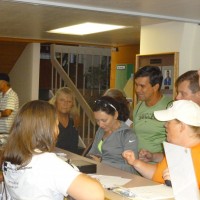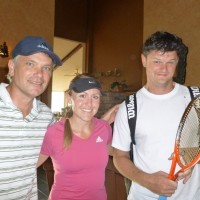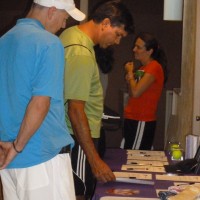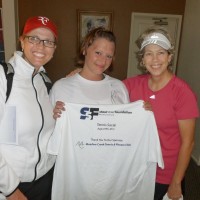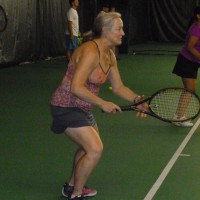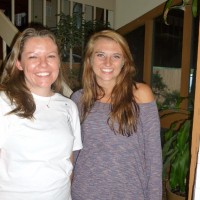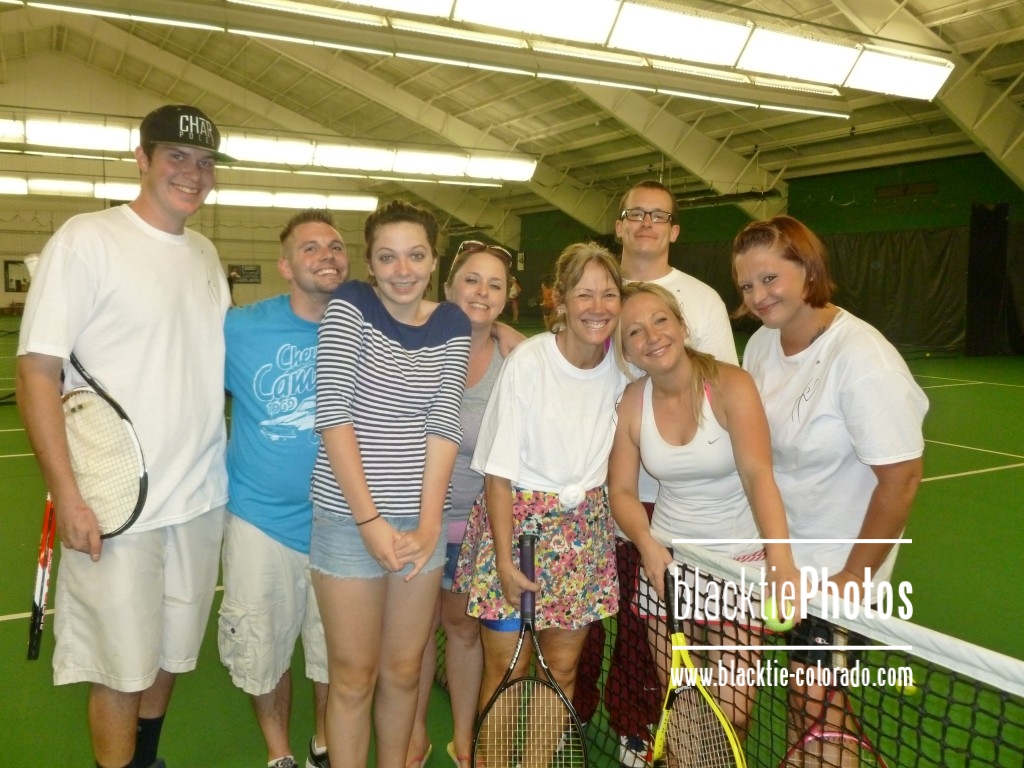
Picture this: The self-proclaimed “shot of the day” at this year’s Stout Street Tennis Social featured a partner squatting down to leave the upper lane clear for a volley…and getting hit squarely in the back. Needless to say, almost-pros to “I think I’ll just watch” folks all had a great time at this year’s tennis soiree on Saturday, Aug. 9. With Meadow Creek Tennis Club owners generously opening their doors to players and complimentary food all provided by donors, 100 percent of the proceeds were able to go directly to Stout Street Foundation’s resident treatment programs.
Guests arrived around 6 p.m., grabbed a complimentary event t-shirt and headed to the upstairs lounge, a tennis-lover’s dream. Snacks and soft drinks were available, along with a wide-screen TV featuring—what else?—tennis. Guests had the opportunity to bid on a number of silent auction items, and those who were in non-player cheerleading mode could watch the action on all the courts.
Meadow Creek teaching professionals Doug Rees and Ashley Tindle led drills for beginner-to-intermediate players, and heavy-hitters warmed up on their own. Tennis play featured great shots along with a lot of laughs and the evening ended with a casual dinner for all.
The event was yet another sellout for Stout Street Foundation, and Vice President of Development Teri D. Smith expressed her thanks to Meadow Creek owners Adam Kahn and Debra Kahn Freeman for opening their venue to the event, as well as Robyn and Tim Lollar for donating and handling all the event catering.
The mission of Stout Street Foundation is to provide the necessary services and support in a totally structured, therapeutic community environment to assist addicts and alcoholics to help themselves in rehabilitation, recovery and transition in returning to society as productive and responsible citizens.
SSF operates as a not-for-profit, self-sufficient organization without primary economic dependence on municipal, state, or federal funding. Within the structured environment, the organization provides food, lodging, and specific programs and treatment for its residents. For more information on long-term residential treatment, 28-day residential treatment and out-patient assistance, please visit: www.stoutstreet.org.
- Event co-chairs Teri D. Smith (left) and Robyn Lollar
- Robyn and Tim Lollar donated all the event’s catering.
- Guests are ready for play–on and off the court.
- (l to r): Carlos Peterson, Helen Young, and Craig and Karan Tierney
- Megan Fischbach (left) chats with catering donors Tim and Robyn Lollar
- (l to r): Doug Rees, Megan Fischbach and Chris Kirgan
- Melissa Harris and Todd Clough
- (l to r): Kathy Mueller, Adam Kahn and Julie Gall
- Brian and Krystal Messer
- (l to r): Becky Petrucelli, Jordan Petrucelli, Jessica Konecny, baby Solomon and Gaia
- Perusing the silent auction
- Michelle Mapoeneck (left) and Jo Johnson
- Vic (left), with Ron Vincent
- Tommy Salazar (left) and Joe Reed
- Tasty appetizers awaited arriving guests.
- (l to r): Angelique Manley, SSF’s Amber King with the event t-shirt, and Kristen Hanson
- Whitney Vaswig and Greg Foster
- (l to r): Kathy Mueller, Teresa Alleman and Julie Gall
- Bring it!
- The competition could virtually keep you on your toes.
- Focused and ready
- Savoring the shot
- Socializing at the social
- Best tennis attribute? A sense of humor.
- Next team up…
- Taking a breather during drills
- Tennis begins with love. ~Author Unknown
- Focused on the next opponent
- Watching the drills
- Ready for the next challenge during drills
- (l to r): Meadow Creek member Brian Mikkelson, with teaching pros Doug Rees and Ashley Tindle
- Meadow Creek owners Debra Kahn Freeman and Adam Kahn, with Helen Young (far right)
- Perfect tennis form
- Ready to play
- Going for an ace
- Meadow Creek’s Heather Bradley (left) and Alyssa Powers
- SSF staff members and friends






